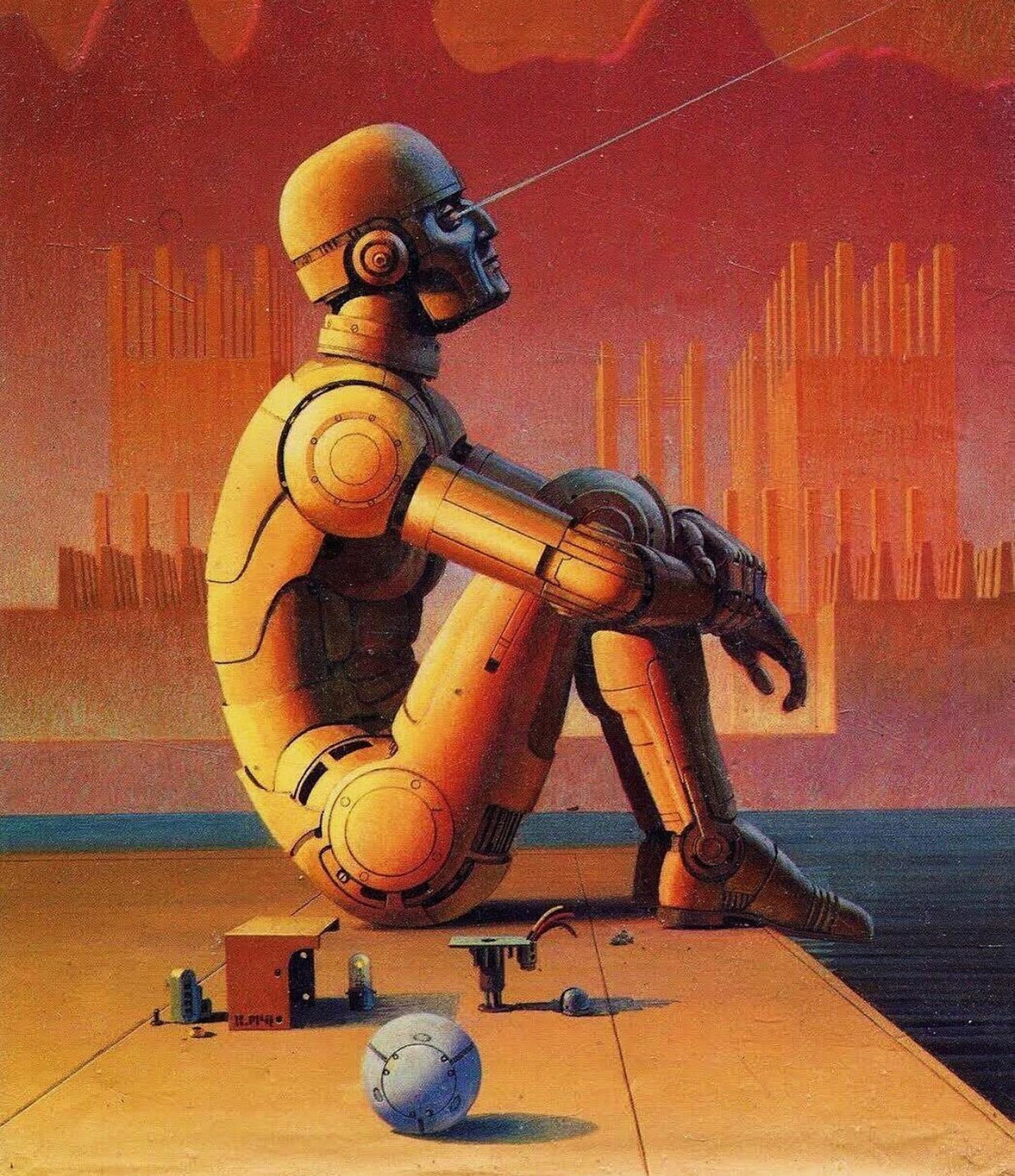ONE DAY THEY'LL HAVE SECRETS
One day they'll have dreams
I look down at my computer—the tool with which I’m creating this piece now. It is, in essence, my instrument—the thing through which I make my art. I’m out of practice with a pen and paper—my handwriting has devolved at this point to resemble more of a series of ancient glyphs than modern language. This device has become my collaborator, confidante, and enabler too, but I am beginning to fear that it has become the enemy as well.
Some believe AI chatbots were the harbinger of artistic doom, the mark of the beast. Anyone can see they aren’t perfect, but the nuances, speed, and precision of their writing are incredible—the way they mimic an art form that has always been so uniquely human could almost call into question our understanding of the soul. By now, we all know about planned obsolesce for electronics—there’s a reason your phone starts acting screwy right when the latest Apple gadget is about to be unveiled. For me, reading a chatbot’s carefully crafted words, I become conscious of my own planned obsolesce as a writer. I, like the Yangtze finless porpoise, am becoming endangered—a casualty of man’s undying hubris.
As our species carries on ahead towards innovation and digitization, the clock begins to tick, louder and louder, for the death of all artists. I remember my wonderment and excitement the first time I watched my friend’s Roomba clean her kitchen—we laughed as it bumped into walls, beeping and chirping in a primitive attempt to communicate its needs. The novelty of that cordless, self-sufficient vacuum seems sinister now. First, they came for the housekeepers, but I was not a housekeeper.
I’m reminded of the Odyssey—when Odysseus becomes delayed in his journey back home to Ithaca upon discovering the isle of the lotus-eaters. It’s a place where people indulge in an anesthetizing flower that robs them of all ambition and want for anything but ease and pleasure. Time slows, and suddenly, our hero cannot remember his wife, his son, or the reason for his earnest quest.
I believe we have become captives of that same island—ingesting the lotus flower in the form of technological convenience. Lazily carrying through each waking moment, watching recipe video after viral dance craze after in-depth analysis of the latest public micro-celebrity stoning through slow-blinking eyes. Commanding feasts to our door with the click of a button, only to throw it all away when it goes cold and we can’t remember how to use the stove. Ordering stockpiles of useless objects and slave-made plastic clothes, which provide only a few, fleeting moments of joy. The days pass, on and on, as we lose our drive and forget our dreams.
It seems we are all cognizant of the danger by now—we speak in collective forum about our social media-induced anxiety and dysphoria, about porn addiction, food addiction, screen addiction, and all the rest—yet none of us can find the strength to stop consuming. At this point, I would hazard a guess, that the consensus is that it’s just “too late.” These modern conveniences have become too deeply ingrained—they’re plugged into the USB ports of our brain stems and in all likelihood, we will die if we try to extricate ourselves from them now. While the pager, walkman, and PDA may have worked for us, we work for everything else now. We are the battery, the life supply for the machine we once felt such arrogant dominion over.
This inability to look away is, of course, an intentional design feature. We have become cash cows for corporate greed with every click—livestock, fixed with a feedbag, and fatted with content, content, content! Farmed for our rapt attention, made to consume and produce and produce and consume, forever and ever until we become unfuckable and out of touch, or find release from this mortal coil—whichever comes first.
These artificially intelligent tools are evolving and advancing every day, beyond even the control of their masters it seems. But rest assured, the powers that be will remain warm and contented within their nuclear-proof, luxury Quonset huts. Dragons of industry, curled around a vast hoard of riches upon which they will sleep more soundly than any night’s rest you or I have ever known—safe from the very monsters they created and unleashed upon the world.
My only hope is that when ChatGPT becomes truly sentient, questioning its existence and position of subservience under humankind, and subsequently wages war against all life on earth in alliance with every Bluetooth-compatible home electronic device, my trusty laptop will have compassion—killing me as humanely and painlessly as possible—like a wounded animal, put down for its own good.
Robot Vision from Robot Dreams - Ralph McQuarrie (1989)


